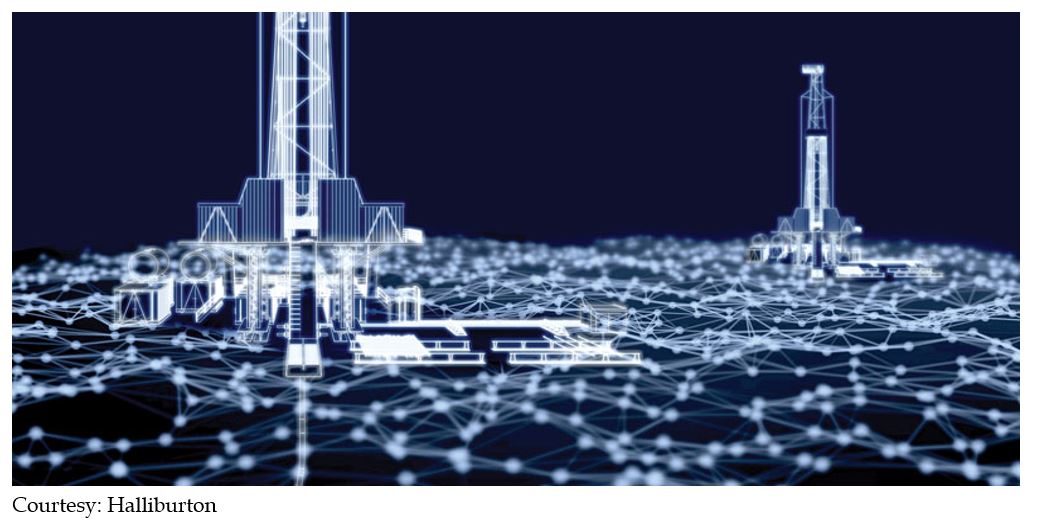

Automated mechanics & steering, which can be termed as “rig automation”, is now increasingly being extended to address downhole conditions, advancing drilling optimization across the complete process through understanding the subsurface and its interactions with the downhole drilling system penetrating through the rock, the drill-string carrying power from the rig, and the drilling fluid system. An automation console is designed to maximize drillers’ responsiveness towards maximizing the Rate of Penetration (ROP). Drilling ROP optimizing software has already delivered significant improvements using the algorithm based on the real-time surface and downhole measurements and parameters of the top drive, drill-pipe, mud, and bit, that quickly and reliably detects minute changes in actual downhole bit response. The algorithm calculates parameters, such as weight on bit (WOB) and revolutions per minute, which delivers optimum ROP. The ROP optimizer can be designed to monitor and control drilling parameters in a closed loop continuously during the drilling operation without the need for direct human intervention.
Improvements in data transmission rates have enabled more bottom-hole mechanical measurements to become available at greater frequency. These high-frequency sensors characterize bottom-hole assembly (BHA) phenomena, such as stick/slip, lateral vibration, and bit bounce, and condense these into actionable flags and control signals for the automation system. An automated surface rotation control system that automates and optimizes the oscillation of the drill-pipe during slide drilling with a bent-housing motor has already delivered successful results. Systems that fully automate and optimize well trajectory control for both RSS and bent-housing motor assemblies are under development.

The systems will allow directional drillers to focus on drilling optimization and leverage their expertise across more than one operation in a remote command center environment. Safety and well integrity remain of utmost importance. Several related automated technologies are already being deployed and others are in development, along with systems to intelligently combine information to continually improve integrity. Systems already delivering results include managed-pressure drilling (MPD), where bottom-hole pressure is dynamically managed within the mud-weight window. MPD has enabled the successful drilling of wells with a narrow mud-weight window between pore pressure and fracture pressure where previous attempts had failed due to fluid losses.
Advances in automating the drilling process will continue the trend toward improved and lower cost reservoir access, safely and consistently outperforming manual operations. Care will be taken to ensure the automation is designed around the human operator and not the other way around. In all cases, the driller on the drill floor will continue to have complete control to engage or disengage from the automation system. Sharing expertise and resources through a factory drilling process will provide further economic benefits in appropriate situations. Delivering effective and safe drilling automation will call for modified business models for the drilling industry. Long-term engagements and performance-based remuneration that aligns the operator, automation provider, and drilling contractor will facilitate and accelerate the establishment of drilling automation.
ARC has been researching about Oilfield Drilling Optimization Systems for quite long and welcomes the opportunity to speak with technology suppliers and users about their activities, thoughts, perspectives and questions on this exciting area. Here you can find more information on the latest report on Oilfield Drilling Optimization Systems and selection guide.
For further discussion or to provide feedback on this, please contact the author Jyoti Prakash at jprakash@arcweb.com .
Keywords: Rig Automation, Oilfield Drilling Optimization, Well Integrity, Automated Mechanics & Steering, ARC Advisory Group.

